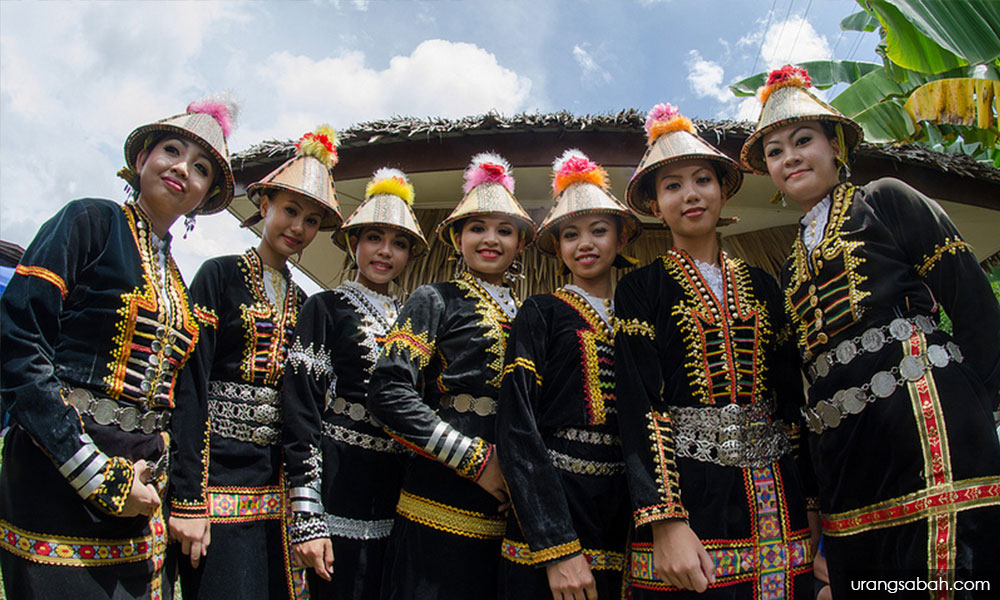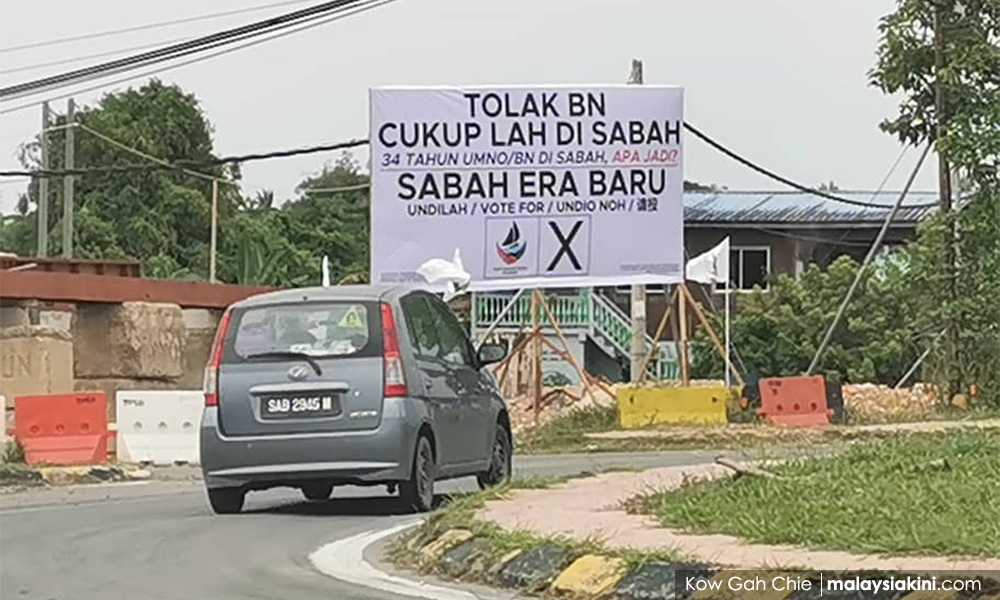
KINIGUIDE | Followers of the heated battle between Parti Warisan Sabah's Karim Bujang and Umno's Mohamad Alamin will have noticed that one of the hottest topics on the agenda is the implementation of the Sabah Temporary Pass or Pas Sementara Sabah (PSS), which is set to be rolled out on June 1.
Whether in ceramah sessions or on social media, Umno/BN have made it a focal point of their attacks on the administration of Sabah Chief Minister Mohd Shafie Apdal, while Warisan has defended itself by saying it was originally a BN proposal that it thought was worth pursuing
It's become such a hot potato locally that the Home Affairs Ministry issued a statement to clarify misconceptions about the new document.
In this instalment of KiniGuide, we'll give readers a clearer picture of the PSS and why it has become an important issue to Sabahans.
What is the PSS?
The PSS is the new document that the Immigration Department will issue to migrants, replacing three existing documents, namely IMM13, Burung-burung cards and census certificates.
This follows a decision made by the Committee on the Management of Foreign Nationals on Sept 6, 2019, and announced later by Home Minister Muhyiddin Yassin on the same day.
Holders of IMM13 are Filipino refugees who fled to Sabah in the 1970s during the escalation of the separatist violence in the Mindanao region which saw many fleeing the Marcos regime.

Economic migrants, on the other hand, were given Burung-burung cards in the 1980s. Others were given Federal Special Task Force Banci (census) cards in the 1990s.
IMM13 is issued by the Immigration Department, while the Burung-burung cards are issued by the Chief Minister's Department (JKM) and the census certificates by the National Security Council (MKN).
Currently, there are 51,645 IMM13 holders; 47,518 census certificate holders and 39,892 Burung-Burung holders.
Under the PSS, the government will revoke these documents once the PSS is issued, streamlining the process and allowing for better documentation of migrants in the state. It is a government initiative intended to tackle the problem of document forgery in Sabah.
The PSS will come in the form of a card with biometric security features, including fingerprint and a photograph of its holder, which is absent in the three documents.
It can be renewed every three years with a fee of RM120.
Will the PSS lead to citizenship?
No, it will not lead to migrants or any other foreigners attaining citizenship. This was explicitly made clear in the Home Affairs Ministry statement released yesterday.
“The government would like to emphasise that PSS holder's status remains as a foreigner and not a guarantee to be granted a permit, Temporary Resident (status), Permanent Resident (status) or citizenship," it said.
Why is PSS a concern in Sabah?
The PSS has been falsely presented as a means to enable migrants to gain citizenship in Sabah.
Local politicians are playing on fears of a repeat of the notorious Project IC in the 1990s that had angered Sabahans, especially the Kadazandusun Murut (KDM) community. Under the Project IC, many illegal Muslim migrants were allegedly granted citizenship so as to change the demographic balance in Sabah in favour of the Muslim bumiputera community.
The Sabah population, which stood at 648,693 in 1970 and increased gradually to 1.01 million in 1980, had grown dramatically to 2.6 million by 2000.

However, the demographics of the state changed with the largest group, the KDM community, declining from 37 percent in the 1960s to 23 percent in 2006.
Sabah politician and activist Dr Chong Eng Leong alleged in 2012 that there were 700,000 Project IC citizens and 200,000 of them were voters.
Prime Minister Dr Mahathir Mohamad and his then deputy prime minister Anwar Ibrahim were said to be the masterminds behind Project IC, which was also referred to as "Project M".
However, the Royal Commission of Inquiry (RCI) on Sabah illegal immigrants in December 2014 cleared the government and political parties of mass issuance of citizenship to migrants in the state.
How have the local political parties reacted to PSS?
Kadazandusun Murut-based opposition parties in Sabah, such as Parti Bersatu Sabah (PBS), Sabah Progressive Party (SAPP), Parti Solidariti Tanah Airku (Star) and Parti Kerjasama Anak Negeri Sabah (Anak Negeri) oppose the implementation of the PSS.
They claim that the PSS is not in line with the Immigration Act requirement that a foreigner must produce a passport when entering Malaysia.
Local NGOs Sabah People’s Education Improvement Organisation (Pipa) and Solidariti Rakyat Sabah (Sorak) have also said that they will organise a protest against PSS in Membakut town in Kimanis on Jan 15, three days before Kimanis people cast their ballots.

Shafie has rejected the accusations, saying that the PSS was a good idea that came from BN's Joseph Pairin Kitingan himself.
Meanwhile, Deputy Home Minister Mohd Azis Jamman said the PSS issued will not exceed the number of registered holders of IMM13, Burung-Burung cards and census certificate at 136,055 people in the state.
Warisan vice-president Peter Anthony, who is also the KDM Malaysia president, said the community understood the rationale behind the issuance of the PSS and would not be easily manipulated. - Mkini



No comments:
Post a Comment
Note: Only a member of this blog may post a comment.